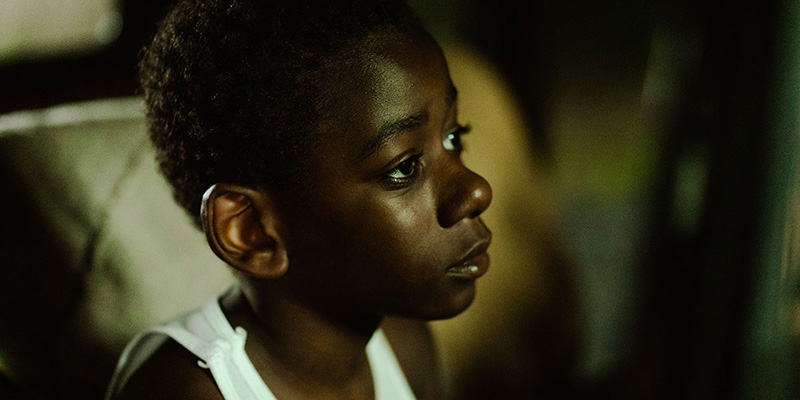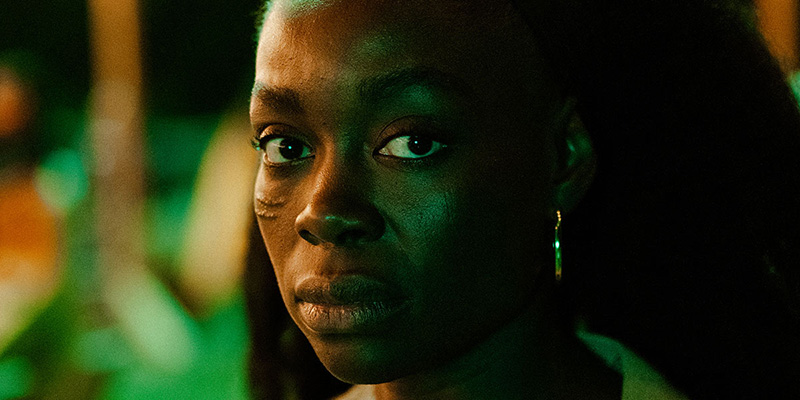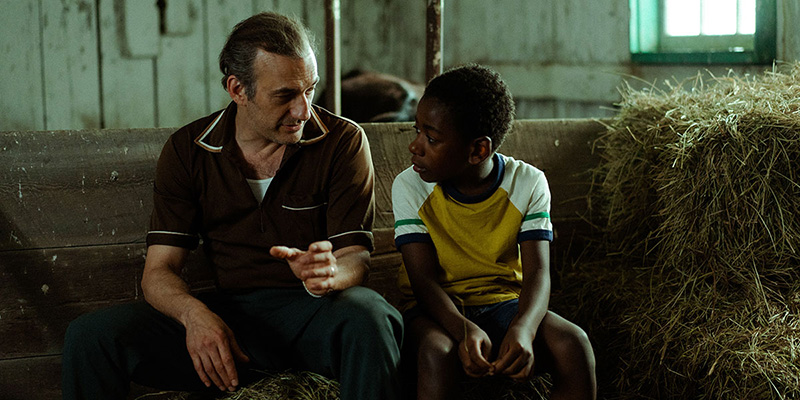Henri Pardo’s Kanaval: In a Strange Land
By Maurie Alioff
(September 13, 2023 – Toronto, ON) Set in 1975, the unusual Tiff selection Kanaval focuses on Haiti, one of the most troubled countries on earth, while conflating it with Quebec. Pardo’s movie, which veers between ultra-realism and fantasy, was supported by The Canadian Film Centre/Netflix Project Development Accelerator Program. With its measureless international reach, Netflix can think beyond conventional distribution and exhibition.
While Kanaval does not explore the island’s history, the movie’s Haitians obviously live with the impact of legacy. The African born slaves of Haiti were the first Caribbeans to lead a revolt against their European colonial masters, the French, succeed and establish a republic. Nearby Jamaicans also rebelled against their monstrously cruel British enslavers – a punishment device called the “treadmill” forced victims to walk for hours while they were molested, beaten, and whipped.
But while Jamaican “Maroons” succeeded in overcoming English armies and carving out free territories, Jamaicans, while freed from slavery in 1838, remained under British control until 1962. Sugar plantations on both Haiti and Jamaica provided the French and the British with the sweetener they craved in their lovely pastries and cups of tea. Plantation owners and importers made spectacular fortunes.
When Haiti achieved its status as an independent republic in 1804, eventually the French terms demanded massive compensatory payments that crippled and impoverished the island to this day. Over the years, Haiti has also suffered numerous epidemics, earthquakes, famines, criminality, and violent dictators like Papa and Baby Doc Duvalier. In 2023, it is deemed a failed nation.

Kanaval plays out from the point-of-view of a young boy, Rico (Rayan Dieudonné). A child with an active imagination, the film introduces him in screen-filling closeups, his face full of wonder, eager to enjoy the annual kanaval (the Creole word for carnival). Pardo offers glimpses of the event: the drumming, dancing, the masks and costumes some of them jokingly mocking authority figures, the hints of magic.
For Rico however, something is amiss. His pregnant mother Erzuile (Penande Estime), insists that he stay away from the kanaval. “We don’t know who is whom tonight!”, she says. Something could happen, a warning she doesn’t explain.
In follow-up reaction closeups, Rico is confronted by a horrific sight in total contrast with the wonders of the carnival. Erzuile is being beaten, tortured by thugs with clubs. We discover she’s been condemned as an activist who teaches “communism” to her students.

The movie segués from drums and tropical heat to Rico and Erzuile crossing a snowy track in rural Quebec. Mother and son have run for their lives. Without much exposition about how they got of Haiti, or why they chose the Quebec countryside, mother and son are ensconced in the comfortable house of an elderly couple, Albert (Martin Dubreuil) and Cécile (Claire Jacques). They have no children, and for them Rico is like a gift from God. Cécile is all hugs, kisses, and comforting embraces. Albert takes Rico hunting and teaches him the ways of the woods.

For much of the film, Albert and Cecile, who would fit into the classic Quebec TV series, Les Plouffes, are kind and welcoming, a little too much so from my perspective. Maybe there’s a bit of White Saviour attitude going down.
Of course, rural Quebec turns out to have snakes in the grass. The film turns into a depiction of black refugee/immigrants in a white world. Rico gets ridiculed by a blatant racist (Sylvain Massé), who at best thinks black people are funny. In the 1950s, there would have been a lawn jockey adorning his house, and he would have taken his kids to a restaurant called Sambo. Even worse, sneering cracker kids attack Rico amd shove him into shit. Erzuile, who has become distant, blames him for the mess, and orders him to get a strap for punishment.
Pressure builds on Rico to the point he commiserates with an imaginary friend, a horned alter ego out of myth, or a carnival. Mother and son escaped a trap, and now they are snagged in another one. Haiti was dangerous, but in the Quebec countryside they are aliens who are not entirely at home. They need to make another move.
Images courtesy of TIFF
![]() Maurie Alioff is a film journalist, critic, screenwriter and media columnist. His articles have appeared in various publications, including Canadian Cinematographer, POV Magazine, and The New York Times. He is affiliated with the Quebec media industry publication, CTVM.info and is the Québec Correspondent for Northernstars.ca
Maurie Alioff is a film journalist, critic, screenwriter and media columnist. His articles have appeared in various publications, including Canadian Cinematographer, POV Magazine, and The New York Times. He is affiliated with the Quebec media industry publication, CTVM.info and is the Québec Correspondent for Northernstars.ca


